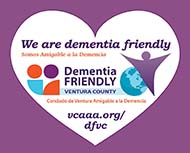
Does your loved one need a caregiver? It can be difficult to tell when the aging process is beginning to take effect on our loved ones. It is up to us to be observant for cues that our loved ones may need help with daily tasks rather than waiting for a potentially serious event to occur.
Below are 7 indicating signs that our loved one may need a caregiver; by taking action sooner rather than later, we can keep our loved ones safe and healthy and avoid potentially dangerous situations.

Scorched Pans
Reduced cognition is a sign to be on the lookout for. Have you noticed scorched pans or stove in the kitchen? This could be a sign your loved one is forgetting about food cooking on the stove which is a significant danger to themselves and others.

Repeated Questions
Does your loved one ask the same repeated question or tell the same story over and over? Do they become lost or confused in familiar places or have difficulty following directions? Forgetfulness is key indicator of the onset of dementia or Alzheimer’s.

Missed Medications
Have your loved ones missed doses of medication or left the keys in the ignition or doors unlocked? This is not only a quality of life issue; it’s a matter of risking personal health and safety.

Speaking Louder or Less than Usual
Unusual behavior or memory loss that disrupts daily life is another sign of Alzheimer’s or dementia. You may notice other changes like speaking louder or less than usual, general disinterest or withdrawing from social situations.

Wrinkled or Baggy Clothes
Physical changes can sometimes be the easiest to spot. Is your father who once had impeccably pressed clothes and a mother with not a hair out of place now donning wrinkled clothes and uncombed hair? Are their clothes looking baggy or are they beginning to appear thin and frail? Poor hygiene and weight loss can be indicators of depression or the inability to keep up with tasks such as cooking and cleaning.

Refrigerator Empty or Full of Spoiled Food
Is your loved ones refrigerator empty or full of spoiled, uneaten food? This can be a sign that they are having difficulty with tasks like grocery shopping and cleaning. They could also be losing their sense of taste or smell which will make them less interested in food.

Irrational Purchases
You may notice that your once financially responsible loved one has had begun to have issues managing their finances; whether it’s making irrational purchases, difficulty calculating simple math or paying bills late (or not at all). Another huge issue facing our aging loved ones today is senior targeted scams and fraud. It’s important to see the signs and take action to protect our loved ones before a financial disaster occurs.
If you notice a change in a loved one’s behavior or physical changes, it’s important to not ignore the warning signs but to address them with their doctor. Early detection can provide some symptom relief and can help maintain a level of independence longer. With Assisted’s Caregiver Services you can have the peace of mind that your loved one is being cared for and happily aging-in-place in their own home. For more information, please contact the award winning team at Assisted Healthcare Services, at (800) 949-6555 or www.assisted1.com.







